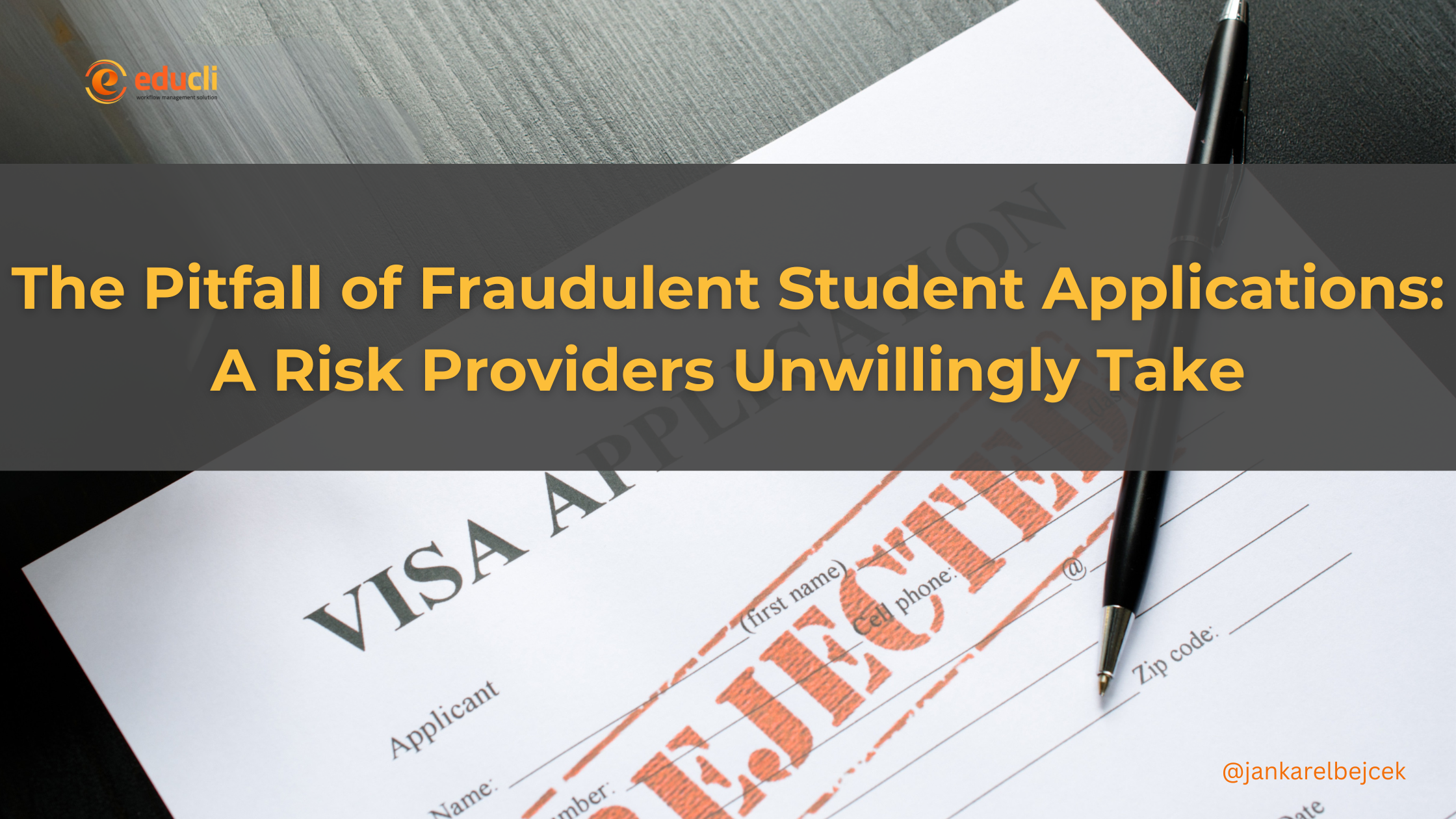One of the biggest threats to the integrity of international education is students applying with bogus or fraudulent documents — whether academic, financial, or identity-related.
While the temptation to “game the system” might come from pressure or poor advice, the consequences are serious: visa refusals, bans, and reputational damage — not just for the applicant, but for the education provider, the agent, and the entire sector.
The Real Concern? Providers Are in the Dark.
Educational providers are held accountable for the quality and compliance of the students they enrol. Yet often, they have no visibility into the actual student visa application submitted on their behalf. This is especially problematic when providers are penalised or downgraded based on visa refusal rates that include rejections due to fake documents — something they had no chance to prevent or detect.
It’s time to rethink the system:
- Access and transparency: Providers should have access to visa application materials lodged on behalf of their offer holders — especially if the outcome affects their compliance rating or risk tier.
- Accountability shared, not blind: If education providers are to be scored on visa outcomes, they must be equipped with the tools and oversight to uphold integrity from start to finish.
- Crackdown on bad actors: Genuine collaboration between government, agents, and providers is needed to identify, report, and eliminate those facilitating document fraud.
We all want to attract genuine, capable, and compliant international students. But we can’t do that with one hand tied behind our back.
Let’s work towards a system that’s transparent, accountable, and truly focused on quality.
#InternationalEducation #StudentVisas #Compliance #EducationProviders #MigrationMatters #Transparency #EdTech #VisaIntegrity #Australia #HigherEducation #GTE #NoToFraud #edtech #educli





Leave A Comment